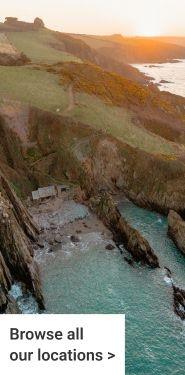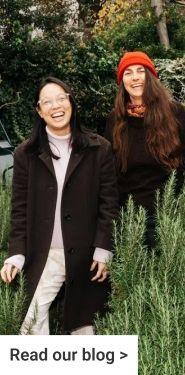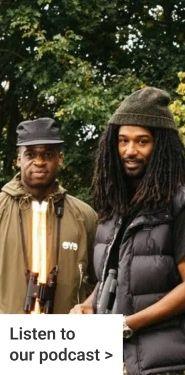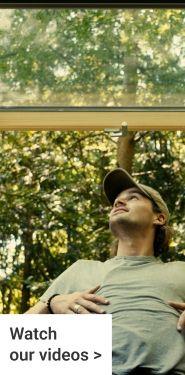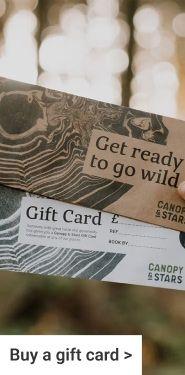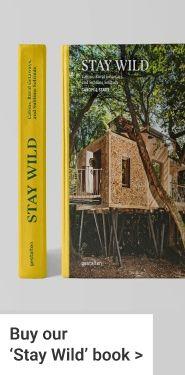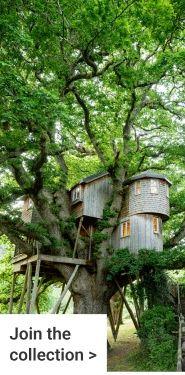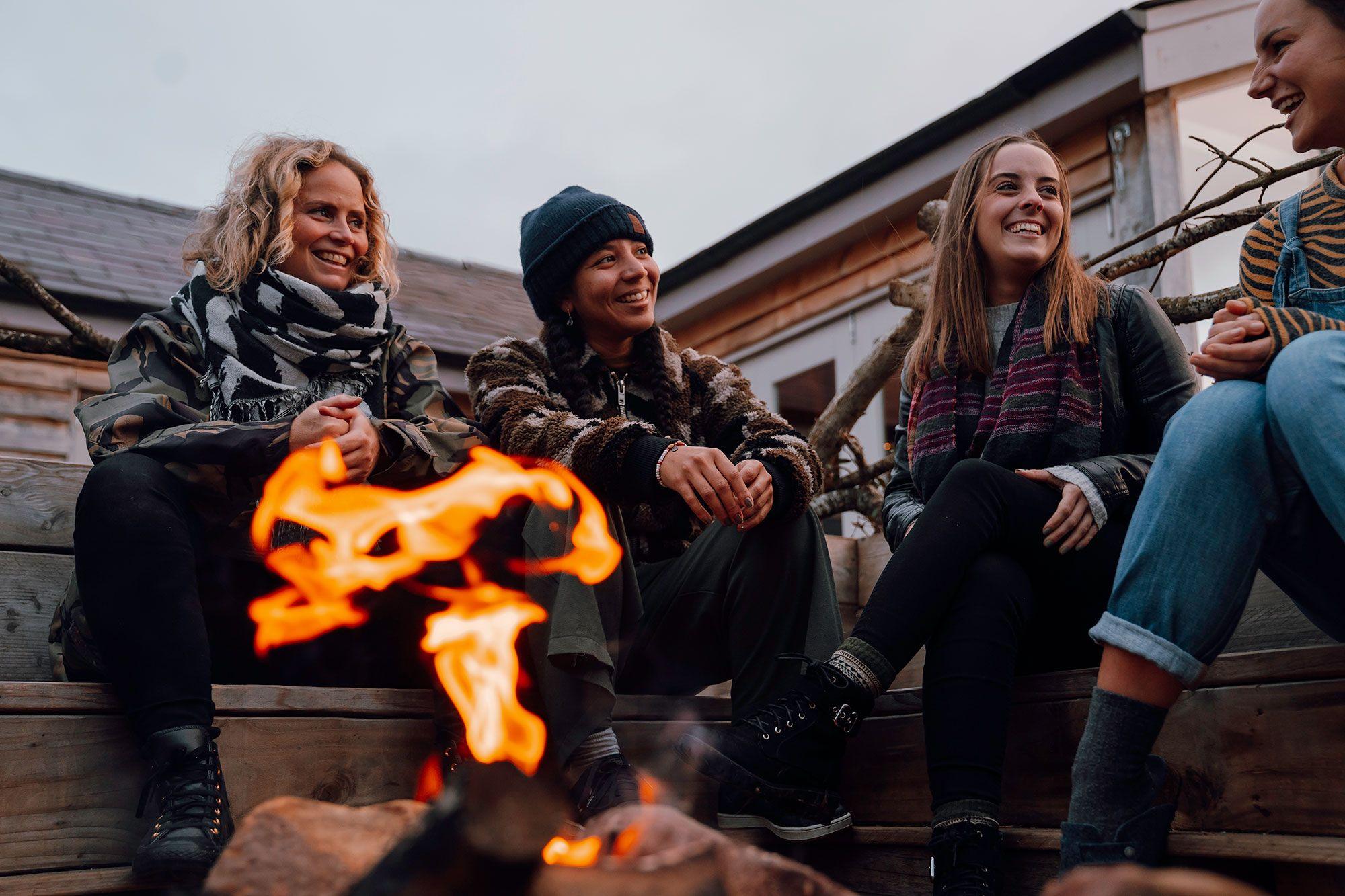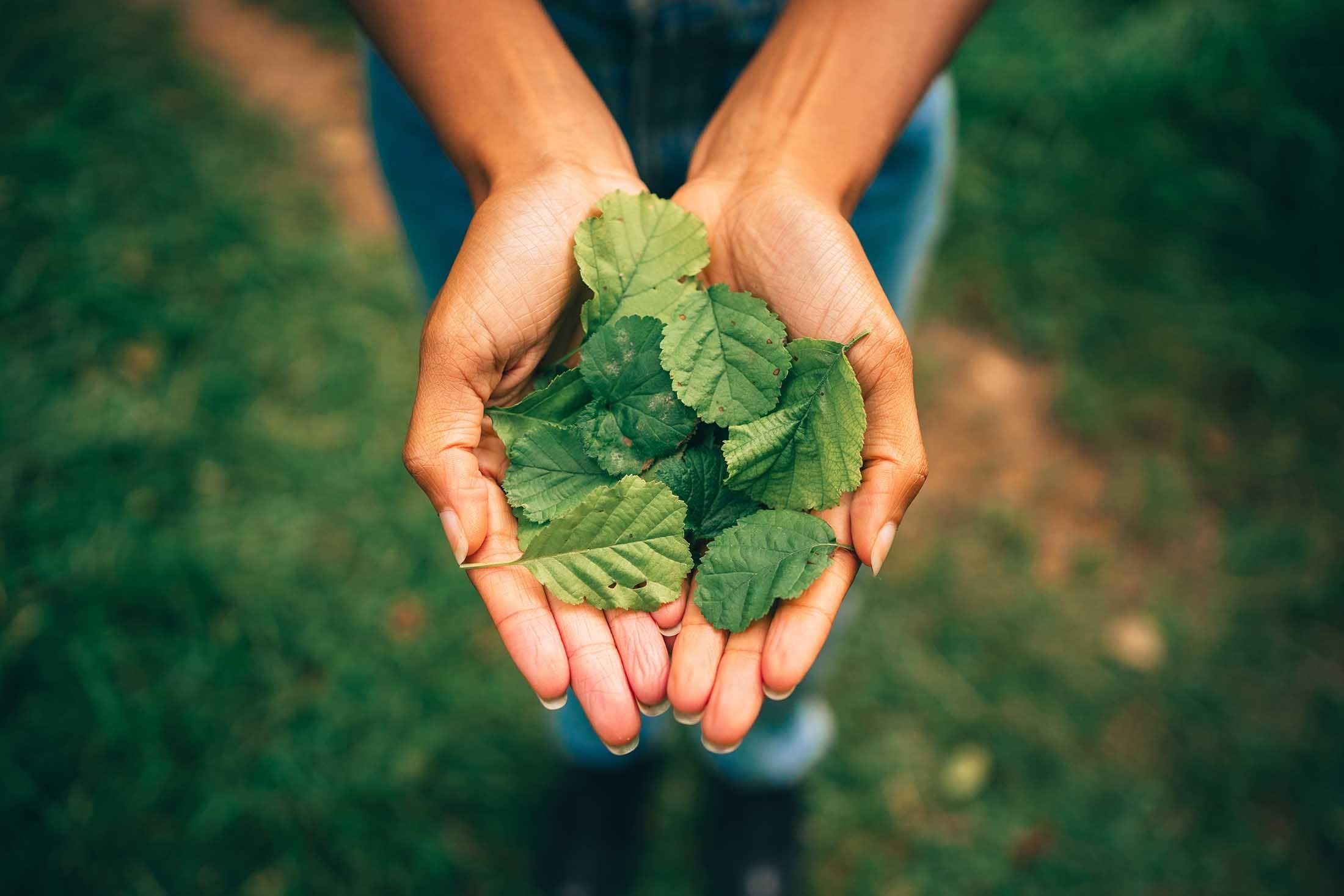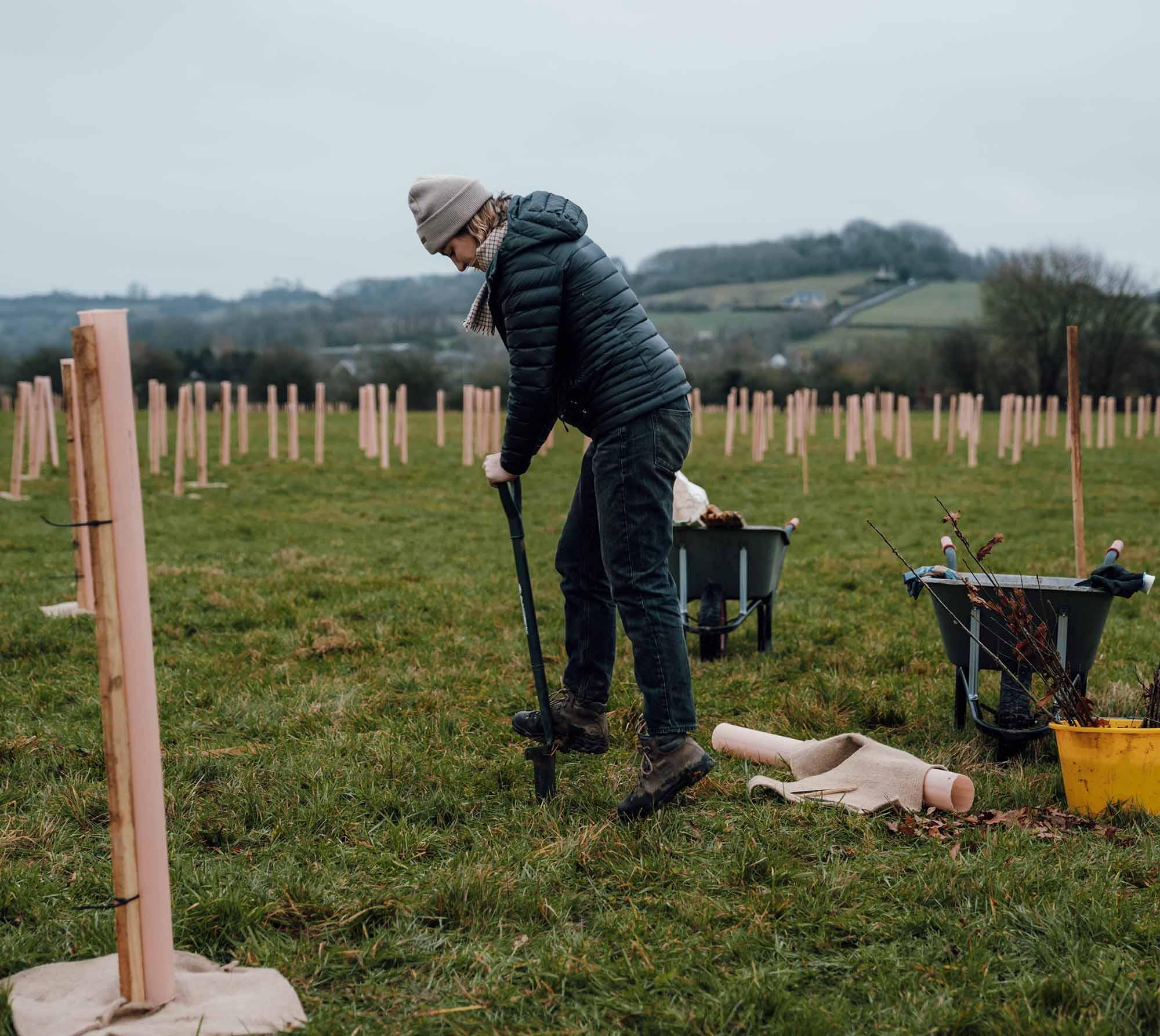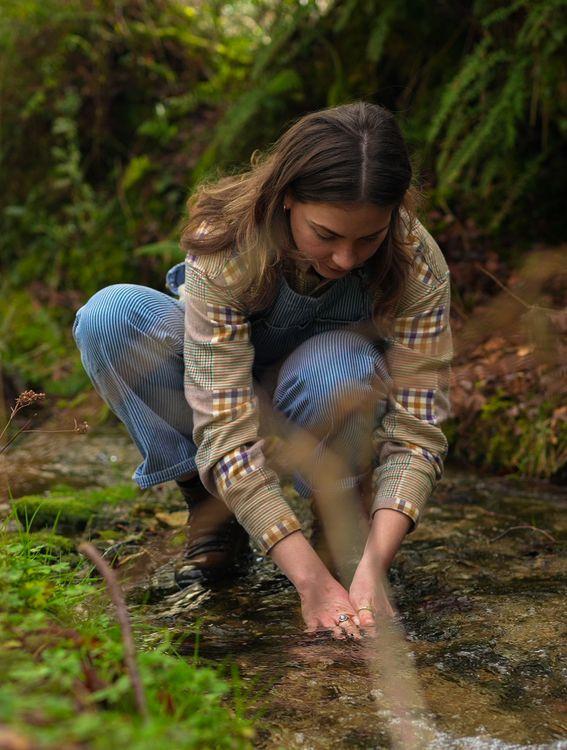
A Life More Wild - Series 2 Episode 1
Ellen Miles & Amira Wanderlust
A nature walk with Ellen Miles
For episode one of series two of A Life More Wild, we spoke to Ellen Miles and Amira the Wanderlust Woman. Ellen is the founder of the charity nature as a human right, through which she campaigns for access to nature to be recognised as a human right by the UN. Last year in lockdown, she also founded dream green, a social enterprise that's training the next possibly the first generation of guerrilla gardeners to transform their neighbourhoods.
Where have you brought us and what are we going to do?
We are Southcombe Barn in Dartmoor. The birds are singing, the sun's just coming out. We're surrounded by the lovely Moors with their wild ponies. We're gonna go dig up some saplings to plant in the hedgerow here. Okay, so we're just taking the wheelbarrow down the hill and walking past a lovely patch of snowdrops on the left and an arch of trees coming above us as we walk towards where the saplings are.
Is this your natural habitat?
So I'm from East London, and I still live there. So it's quite far for me to come out this way. I have been to Devon before but not to Dartmoor, unfortunately, although I will definitely be returning now that I've seen it. It's probably at this point that it might be worth mentioning that I'm definitely not an expert gardener!
But you love it anyway?
It's so good to get your hands in the soil. There's all sorts of incredible bacteria and cultures inside soil that are ridiculously good for us. So something called mycobacteria bacilli, which is a natural antidepressant and in some cases has been found to be as good as an antidepressant as you'd get from a doctor. And soil has something called geosmin in it, which is what gives it the petrichor smell after rain, which lots of people say is their favourite smell. Humans are something like 20,000 times more sensitive to the smell of geosmin than sharks are to blood. It's really a reviving smell, calming and relaxing and a mood-enhancing smell for everyone, but in particular for women.
Here's this sapling then...
Yeah, I'm just going to dig it up carefully and then we'll take it down to where it will be really useful in the hedgerows.
So tell us about Dream Green...
Dream Green is an initiative I set up after I started the Nature as a Human Right Campaign. Because the campaign is petitioning the United Nations to make access to nature a recognised human right and that's quite a long term goal. And a very top down goal. I really believe in grassroots, ground up change. So I wanted to take more immediate and tangible action to make my own neighbourhood greener. I tried working with councils and I tried various routes in, to kind of have various greening initiatives happen but I ended up just kind of planting things in bare patches of dirt around where I live, which is basically guerilla gardening, which is kind of planting in public places with a purpose.
What purpose?
It can be community mental health, it can be food sovereignty, whatever your purpose is, you know, it's going to be beneficial to people and planet essentially. And lots of people became very interested in what I was doing or asking me more about how they could get involved and how they could start doing it. And so I started Dream Green, which is a social enterprise that exists to educate and equip people to become better gardeners.
Is it... legal?
There's a hazy mire of legislation around what you can do and can't do with regards to public planting in UK. So I am trying to create this kind of contract between councils and their residents, their constituents, their communities, that will allow people to plant in their neighbourhoods. So it's taking financial strain, time and effort off the councils, while also kind of empowering communities, especially people that don't have their own garden, to be able to plan things and cultivate a little garden for the public.
So you've got councils on board?
We've had really positive response from Hackney and Lambeth, who already kind of allow the residents to plant. Hackney, in particular, are encouraging of people planting in street tree beds just as long as you follow a few simple rules in terms of not damaging the roots, as I'm trying to do now, and not piling the soil up and things like that. Also not using water-intensive plants that will detract from the tree, especially if it's a young one.
That sapling's not moving...
No! The sapling really doesn't want to move. It's deeply rooted in its current home, but it's not wanted here and it will get kind of out competed if we keep it here, whereas it would be very useful in the hedgerows. At last. So I'm just gonna put this uprooted sapling in the wheelbarrow and take it down to the stream and valley where we're gonna be replanting it along hedgerows and find its new home.
Why do you think Dream Green is taking off so well?
What makes it cool is doing something meaningful for people and planet. Doing something that we should be kind of promoting and not painting as this really dodgy, naughty thing to do. The best way to do that isn't by leaning into this kind of balaclava image, but actually by just going out and doing it in the middle of the day and saying, isn't this a brilliant thing? I've been doing that and all the reactions have been incredibly positive. We need to promote this idea of guerilla gardening as being not about the individual being some kind of rebel. It's not about us. It's about the impact. It's about the community. It's about what it's doing for people and for the world, and less about trying to feel cool. The coolness of it derives from the purpose and not from doing something naughty, because it's not naughty. It's a brilliant thing.
So this is the sapling's new home?
We found a great place for the sapling. In the hedgerow, there's a little gap that it'd be great to fill to thicken up a bit. It'll become a nice little nesting ground for birds. So I'm just gonna dig a hole big enough and the sapling goes in. Then we'll fill it back up again and water it. There's lots of daffodil bulbs coming up. I'll try and put those to one side and put them back in again afterwards.
Have you always been a nature person then?
I get asked a lot about my connection to nature. I think people assume, given I'm working in nature, environmentalism, activism, all this kind of thing, that I have always had this really deep, meaningful, soulful connection to nature. But actually, that couldn't be farther from the case. I mean, I'm from Hackney in London, which is a very green borough in a green city, but it's still very urban. And the green spaces we do have are certainly not wild. I grew up in the coming of age of the internet and mobile phones and all these things where our lives became increasingly indoors and I certainly was squirrelled away indoors, most summer holidays, playing on my Gameboy. I started nature as a human right, not because I had this deep connection with nature, but because I didn't and I felt very robbed of it. And I became acutely aware of that during lockdown.
Why so?
Our need for Greenspaces became bigger than ever, more manifest than ever. Suddenly, I felt this injustice despite, you know, having it much better than most people do. And so I wanted to speak up for that. I think when I start talking about my lack of connection to nature, and the fact this is something I'm only really just building now, I've been fearful in the past that it could be slightly uninspiring. They want to hear about a lifelong bond to nature. That's what people expect from environmentalists, perhaps, but actually, I hope that it can be inspiring because it's more relatable.
Is that the hidden message in guerilla gardening then?
Yeah. For the millions, the billions of people who, like me, have grown up in a very urbanised environment in a very digitised environment - this relationship can start at any point in life. You can begin your journey and your relationship with nature at any point, and you can just get stuck in. You can do the things you love in nature, you don't have to just sit there and stare at a tree, you can bring a book or bring an instrument or write or draw or whatever it is that you like doing. The more that we see that nature is somewhere you can feel at home. And the more that we promote that the more we can kind of move towards a future where everyone feels like they belong in nature.
How's the sapling coming along?
So rather foolishly, as I was digging the hole, I kind of flung the soil up onto these rocks. So now it's between these large moss covered rocks that are making this wall, which is making it slightly difficult for me to get the soil back down onto the sapling. But there we go. I've also just stung myself on a stinging nettle. Seem I'm just a city girl, don't know what I'm doing, but we try, we learn!
So do you think this can help people start to connect with the larger issues?
The climate crisis, the environmental crisis can seem extremely intangible and abstract. It feels like there's not much we can do other than not doing things - you know, not taking a flight, not eating meat. Guerilla gardening is something you can add, it's a positive, it's an action that you can take. And you can immediately see the effect that you've made with your own two hands in the world.
And not just environmentally?
So I think it's the climate angle, but there's also the community side. I have lived in Hackney all my life and I never really felt like I truly belonged there. I didn't feel like it was something that belonged to me or that I belonged to it until I started guerilla gardening. I was having this visible impact on the space and interacting with the space and contributing to it. Then I just started to feel like it was a place that I belong to. I was part of the community there. I felt that's something I've heard echoed through all the people that I've spoken to.
The sapling looks better now...
Just getting a bit more soil, let's make sure there's enough around it. I'm just firming up the earth around the base of the sapling now to make sure it's nice and securely fastened and won't be blowing away on us. Then we're going to water it in nicely so that it gets what it needs to settle into its new home and it's not too shocked at the move. It's always a bit stressful moving house.
All done?
Yes! We've successfully rehomed the sapling. I'm feeling this was a brilliant way to spend the morning and I'm glad that I got to contribute something while I'm staying here, so that I feel more a part of this space. It's something we're sharing and it's lovely to come somewhere and feel like you can give back. I've come in as a guest to this very lovely, very beautiful place on Dartmoor and I felt you know very much as an outsider visiting. But now that I've gotten stuck in I have planted this sapling here and I've added to the hedgerow and this will be here hopefully for decades if not longer. It's nice to get your hands stuck into the dirt and I'm feeling very joyful now having done that.
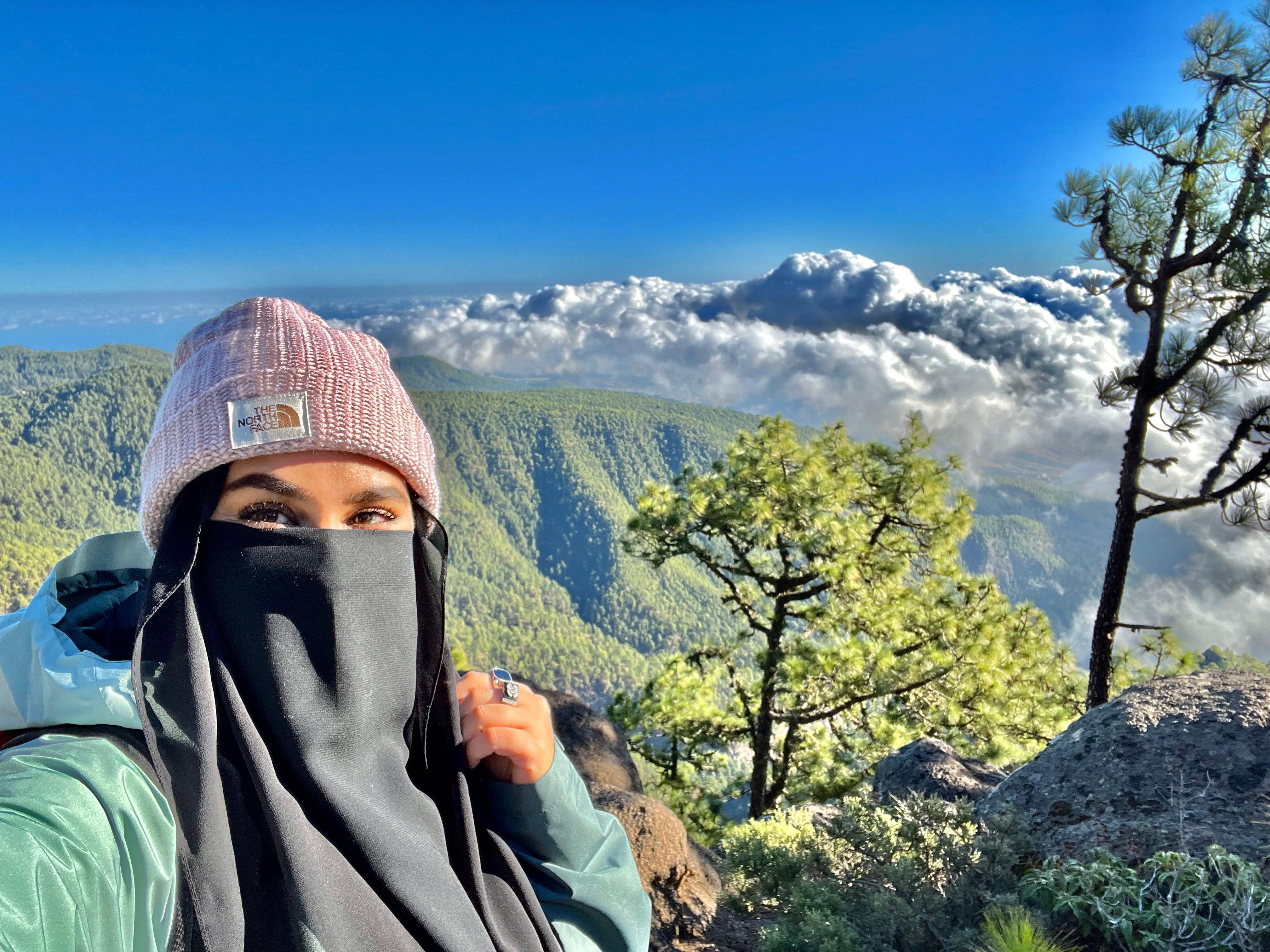
Next we spoke to Amira, the Wanderlust Woman, about how she approached the same issue from a different starting point. Aware that she very rarely saw Muslims like her enjoying the UK screen spaces. She put a simple invitation to a walk on social media. Now she runs the group wanderlust women full time and an incredible number of people I've heard to thank for a newfound sense of adventure.
So you're famous now for founding this incredible hiking and adventure group, but where did it begin for you personally?
My mum basically took me on a hike and I really didn't want to go. I thought I was climbing Mount Everest. I had the wrong kit on and she kept telling me where proper hiking boots and I'm like, I'm not wearing those shoes, they don't look nice! So that was as a teenager and after that I started to fall in love with it. Growing up, we travelled a lot and were exposed to different countries, different mountains and countryside. But that was more sightseeing then travelling. In terms being adventurous, I sort of picked it up from my mum and then found my own journey.
So do you think travelling is different from being adventurous?
Back then travelling was getting on a plane, going to a different country and seeing a different culture or being in a different place. But with COVID, I realised actually there's so much here in the UK to see, I sort of found my passion. I wasn't able to travel, you know, so I went for my "one walk a day" and that walk was from morning till night. I found like a new version of myself that I didn't really know that I had. I found solo hiking, grounding meditation, and then something that I found which was really beautiful to me was how I connected with my faith in the outdoors.
That sounds like a big moment...
I think that's when it really, really hit me that how much I was connected to the landscape around me. The COVID stuff just changed my whole perception. I was like, What am I doing? Why am I in this job? And then I had a whole reality change. That's when I founded the group because I realised, you know, there weren't people who looked like me represented. There was a whole lot of women that wanted to do stuff, but they don't have that self confidence to do it alone. And yeah, and I started the group, and then from there, it's, it's just happened.
Where do those barriers come from?
I think there is definitely a confidence issue. But there are other things, societal issues that make people feel like something isn't for them, the outdoors isn't for them. Because if you don't see it, then you're not going to feel like you can be it and if for however many years, the representation hasn't been diverse or inclusive, if you have not been able to see people like yourself represented, then they're gonna feel like that is not for them. That is one of the you know, one of the biggest barriers is not seeing people who look like you represented. And then after that it's about not being brought up with doing a certain activity, not knowing resources, education, and then having access to a lot of places.
By societal pressure do you mean racism?
A lot of the time, people say how nobody is saying, "you're not welcome here" but my argument is that the microaggressions are the barriers that are there. So I think it's just having those, you know, those access to those things and having that gateway and I think the groups that have emerged during lockdown have been so great because they've been a gateway for people.
So why did you set the group up?
I went through a divorce five years ago and I remember going for a walk. I realised that there wasn't, I don't like saying "safe space" but a space for women to get together. A lot of the time, people go to other things like partying or drugs or alcohol or medication but coming from my faith, well, we don't do any of those things. There was no space for us to come together when we do go through something or when we've been through something traumatic. So I had this idea that I would love to have a retreat and space for women to get together and just, you know, go for walks, and meditate and talk and do different things.
Was it a big thing straight away?
I was still really young and I had these ideas, but I didn't know how to put them out. So just with the locals, I'd said that I'm gonna go for a walk, if any wants to come, come. But it always ended up just being me and my mom and my friend, and we would just be the three of us hiking. Then when COVID came, I reposted that poster that I made five years ago and I got so many messages. And then I was like, okay, why don't I just make a separate Instagram page? And I did that. And then the next day, I had so many messages, and so many like brands contacting me and people asking me and wanting to help to support it. And I was like oh, my God, this is a full time job. How am I supposed to run this group and work?
So you quit?!
I remember coming back from an adventure and a few hours later, being in work and being absolutely exhausted. And trying to fit in adventures and literally ringing my manager in the morning and saying I can't come in, I'm stuck in Scotland. So I was like, I need a career change. And that's when I actually moved last year, left my job and moved to the Lake District.
How does it feel then to be living every day outdoors now?
For me it's been really, really good. I needed it. I mean my community needed it, but I needed it for my own healing and growth and personal development. And now I'm back to where I'm originally from in Bolton, and I literally feel claustrophobic. I'm like, where's the mountains? Where's the space? Why there's so many people and so much traffic. But it's also different coming from a place where you see a mosque and a church and a temple, and you see different types of people. And then you go to a place where you see nothing at all. It's just one type of people that you see. So yeah, there are those sort of challenges that we face.
That must something that feels quite big to go up against...
I think, especially with Black Lives Matter, and a lot of the discrimination that a lot of communities face, which were raised then, obviously, Islamophobia, racism, and all these things you have them in your mind. And luckily, I've been okay. You know, a few microaggressions and a few things here and there. But, you know, we've been really welcomed and stuff, but that's not always the case.
What sort of aggression are we talking about?
Some of the things that we face, especially as Muslim women, people telling us to go back to our country, and that we don't belong here, or we don't see women like you here, you belong at home, things like that. And then I'll constantly get asked, if I know where I'm going or know what I'm doing, or people speak to me in slow English as if I don't understand. And you shouldn't be wearing that when you're hiking, it's not safe.
But now you have support...
When I created this group, it was just a group for people to go walking, but now we're a community and a tribe and we all support each other. It's like a sisterhood. And a lot of the time, these women come because they're seeking something just like I was, or they're searching for another purpose. Sometimes they can be lost, or they're going through something themselves, or they were hikers and they didn't have anyone to go with or they want to find this adventure in them. I swear every single person that comes goes back different. They're calm like the buttons have been pressed, like I was.
And it's gone beyond the group...
People who came with me started doing their own stuff, forming their own groups and some of the women you know, they cry when they come to these places because they just didn't know these places existed. And I receive so many beautiful messages everyday which I wish I could respond to but there's so many. They do make me happy because the main thing is, it's not the hike, it's the feeling that they get when they are connected to wherever they're connected to, whether it's the water or the mountains. They all go back different. That's really great to see.
What's the key to getting more people out there?
I think everyone's adventure is their own and it's how you make it - walking around your local park, or even just getting out and going to a green space. What I say to everyone is that it's not about the summit, it's not about how many mountains you climb, it's not about how fast you climb. It's not about how many peaks you can do, or whatever. It's about how you've connected in that time with the space around you. And I always say to everyone that it's all good and fair to do this, but if you've gone there, and you've not been still with yourself, and you're not connected with the space around you, what was the point of going out to connect?
So it's meditation, and prayer, and exercise?
I always say that walking is like a type of meditation. You're going out to use all your senses and when you do that, that walk will be so different from any other walk because we're so fast paced and we're always working, living, on the phone, family, you know, repeat the cycle, and we don't have that chance just to be still. We had our first Ramadan event in the Lake District two weeks ago now. And we had Muslims, non Muslims, people of faith, people not of faith, we had the local communities come in to see what it's about and what we do. And when we were praying, those who didn't have a faith were say watching, but they were all connecting in the same way. Because there was still, we were still, we were praying. They were just being in the moment and for that, for that five minutes, everyone was just still, with the mountains and the water running. That is the reason why we all go out. Because it's the moments where we just connect even if it's a minute.
So it's a calmer thing than it used to be when you were backpacking?
Yeah, my views are so different from before. I went to the Alps recently and I was literally half an hour from the summit, but I was so tired and the altitude was getting to me and I sat down and thought you know, I'm just gonna meditate instead. Honestly, I felt so much better because it was my first time doing a really high hike as well and if it had been two years ago, I would have been really bothered that I didn't get to the summit. But for me now, it was ok that I didn't get there, I enjoyed the moment. I think that perspective is really important.
Is that spot where you had the Ramadan event your favourite?
Yeah I think so. It's such a beautiful climb. You have this ridge that you walk on, and one time it was sunrise, and the whole sky was just orange. Since then I fell in love with the mountain. I was actually going up once and it was a beautiful day and my friend texted me saying that actually, it was coming towards sunset and Ramadan was going to start. And naturally, I had my prayer mat with me, And I remember thinking I can't go up Helvellyn now because I need to go home to pray. Then I remember just setting down my prayer mat, and I could see Ullswater and the sky was really beautiful, mountains in the back. And then the sun set and Ramadan started. And it was the most beautiful feeling ever because I was like, oh my gosh, I've started my holy month in the mountains I love. So when I was doing the Ramadan event, I wanted to take everyone to this spot where I started, because it was just so beautiful. So it also holds a special place for me, it's just incredible.

